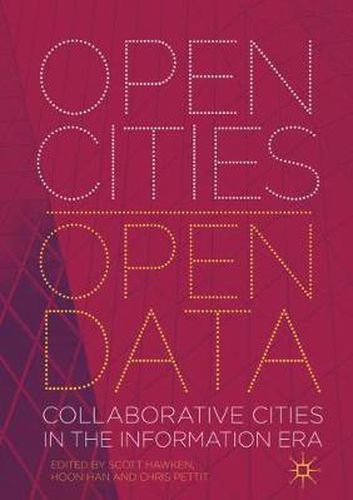Readings Newsletter
Become a Readings Member to make your shopping experience even easier.
Sign in or sign up for free!
You’re not far away from qualifying for FREE standard shipping within Australia
You’ve qualified for FREE standard shipping within Australia
The cart is loading…






This title is printed to order. This book may have been self-published. If so, we cannot guarantee the quality of the content. In the main most books will have gone through the editing process however some may not. We therefore suggest that you be aware of this before ordering this book. If in doubt check either the author or publisher’s details as we are unable to accept any returns unless they are faulty. Please contact us if you have any questions.
Today the world’s largest economies and corporations trade in data and its products to generate value in new disruptive markets. Within these markets vast streams of data are often inaccessible or untapped and controlled by powerful monopolies. Counter to this exclusive use of data is a promising world-wide open-data movement, promoting freely accessible information to share, reuse and redistribute. The provision and application of open data has enormous potential to transform exclusive, technocratic smart cities into inclusive and responsive open-cities . This book argues that those who contribute urban data should benefit from its production. Like the city itself, the information landscape is a public asset produced through collective effort, attention, and resources. People produce data through their engagement with the city, creating digital footprints through social medial, mobility applications, and city sensors. By opening up data there is potential to generate greater value by supporting unforeseen collaborations, spontaneous urban innovations and solutions, and improved decision-making insights. Yet achieving more open cities is made challenging by conflicting desires for urban anonymity, sociability, privacy and transparency. This book engages with these issues through a variety of critical perspectives, and presents strategies, tools and case studies that enable this transformation.
$9.00 standard shipping within Australia
FREE standard shipping within Australia for orders over $100.00
Express & International shipping calculated at checkout
This title is printed to order. This book may have been self-published. If so, we cannot guarantee the quality of the content. In the main most books will have gone through the editing process however some may not. We therefore suggest that you be aware of this before ordering this book. If in doubt check either the author or publisher’s details as we are unable to accept any returns unless they are faulty. Please contact us if you have any questions.
Today the world’s largest economies and corporations trade in data and its products to generate value in new disruptive markets. Within these markets vast streams of data are often inaccessible or untapped and controlled by powerful monopolies. Counter to this exclusive use of data is a promising world-wide open-data movement, promoting freely accessible information to share, reuse and redistribute. The provision and application of open data has enormous potential to transform exclusive, technocratic smart cities into inclusive and responsive open-cities . This book argues that those who contribute urban data should benefit from its production. Like the city itself, the information landscape is a public asset produced through collective effort, attention, and resources. People produce data through their engagement with the city, creating digital footprints through social medial, mobility applications, and city sensors. By opening up data there is potential to generate greater value by supporting unforeseen collaborations, spontaneous urban innovations and solutions, and improved decision-making insights. Yet achieving more open cities is made challenging by conflicting desires for urban anonymity, sociability, privacy and transparency. This book engages with these issues through a variety of critical perspectives, and presents strategies, tools and case studies that enable this transformation.